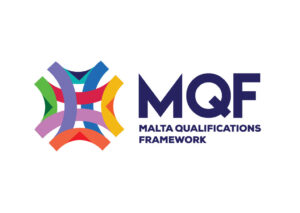Course Code: SGC3001

The Pastoral Formation Institute is licensed by MFHEA (Licence #: 2013-FHI-023) as a Further and Higher Educational Institute. The Award in Safeguarding Children & Vulnerable Adults is accredited at EQF/MQF Level 4, as Further Education Programme.
This short course will assist employees and volunteers who work with children and vulnerable adults or handle their data, to recognise the key principles of safeguarding and to learn to create a safe environment for children, young people, and vulnerable adults.
The intended learning outcomes:
By the end of the course, students will be able to:
- familiarise themselves with safeguarding policies;
- understand the legal obligations with child abuse;
- identify signs and symptoms of abuse;
- know the disclosures of abuse;
- identify the principles of safeguarding;
- practice professional boundaries;
- know their legal obligations related to the Protection of Minors (Registration) Act (2011) and the Minors Protection Act (2019);
- learn about the different types of abuse and poor practice;
- learn a standard response to a disclosure of abuse;
- be able to recognise signs of abuse;
- identify the actions to take if you have a concern and who can help.
- Employees/ Volunteers who work with children and vulnerable adults
- Employees/ Volunteers who handle children and vulnerable adults` data
The course is delivered over 5 contact hours. These 5 hours are delivered over two sessions:
- 3 hours – In person session (Face-to-Face Learning)
- 2 hours – recorded material which can be accessed on the PFI`s Moodle Portal (Blended Learning)
Students will also be given additional reading material which they can read in their own time.
Lecturer/s:
Mr Andrew Azzopardi
Mr Andrew Fiorini Lowell
Ms Carly Zarb
Ms Odette Debono Fsadni
Ms Mary Rose Gatt
Ms Ingrid Baldacchino
Each course is delivered over two sessions; (a) 3 hours of in-person sessions and (b) 2 hours of recorded material which can be accessed on the PFI`s VLE platform.
Lecturing Period
| MODE OF DELIVERY | DATE & TIME | VENUE |
|---|---|---|
| In-person | Monday 4th September 2023 05:30 pm – 8:30 pm | Ċentru Pastorali, Familja Mqaddsa, l-Iklin |
| Recorded Material | Available from Monday 4th – 11th September 2023 | Recorded Videos on the VLE platform |
Assessment Period
| ASSESSMENT | AVAILABLE FROM | DUE BY |
|---|---|---|
| Short Multiple-Choice Online Exam | Monday 11th September 2023 | Monday 18th September 2023 |
| Reflective Journal | Monday 11th September 2023 | Monday 9th October 2023 |
Certification:
This course has three exit certificate options:
- Certificate of Attendance
A Certificate of Attendance will be rewarded to students who have attended the in-person session and watched all the recorded material
2. Certificate of Participation
A Certificate of Participation* will be rewarded to students who meet the attendance criteria and successfully conclude the course multiple choice exam. (please check the calendar tab above for exam dates)
3. Certificate of Achievement*
A Certificate of Achievement is awarded to students who successfully concluded the course, that is, complete all contact hours and successfully complete all the course`s assessments. (please check the calendar tab above for exam dates and assignment deadline)
Click here to view the PFI`s Grading System
*To obtain a Certificate of Achievement or a Certificate of Participation, a student must; attend all the contact hours and successfully conclude the assessment/s.
Accreditation Category: Further Education Programme
Total ECTS: 2 ECTS
Teaching Institutions: Pastoral Formation Institute in collaboration with the Safeguarding Commission.
Award Institution: Pastoral Formation Institute
Level: PFI Level 3 Credits: 1 ECTS
Qualifications: Every application will be considered on its individual merits. The Pastoral Formation Institute accepts a wide range of qualifications, and we always try to judge applications on the basis of academic potential. We do consider a very wide range of academic, vocational, and professional qualifications, as well as work and other appropriate experiences and skills.
Language: Primary level understanding of Maltese and English.
Digital: Knows how to access the internet and use a word processor.



